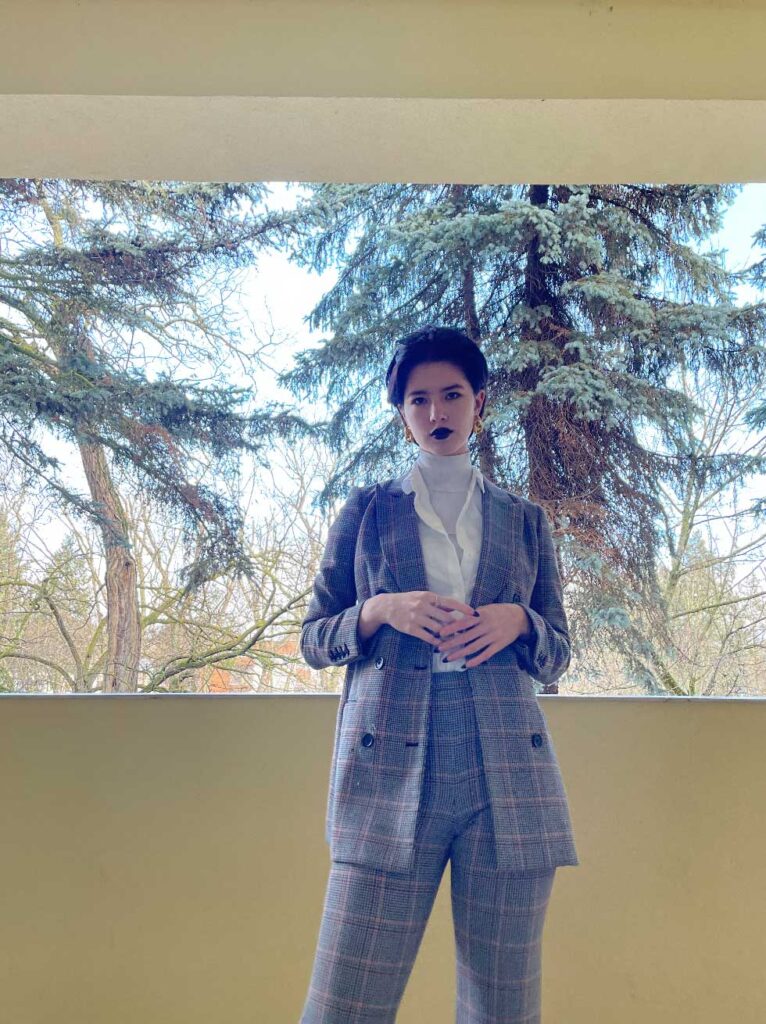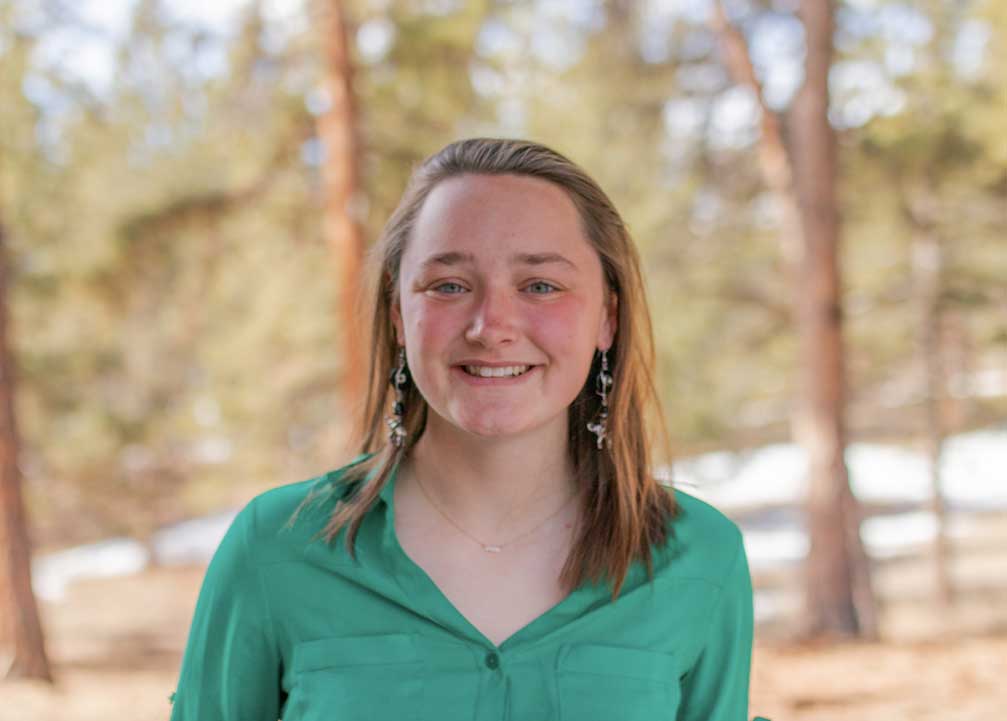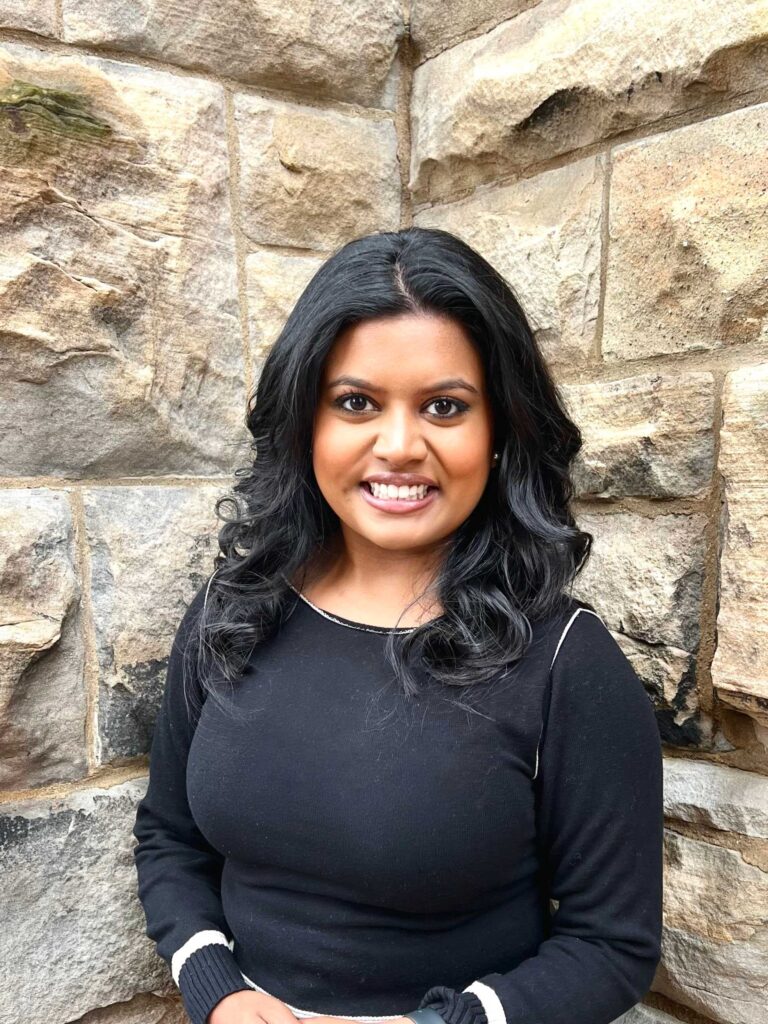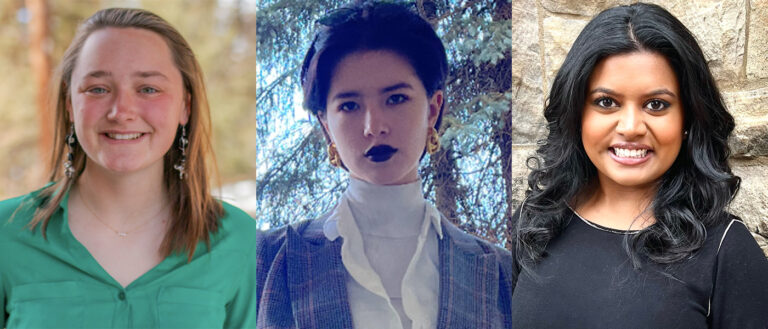As travel restrictions continue to ease, three students from Case Western Reserve University will soon head overseas to teach or conduct research—and immerse themselves in other cultures.
Each received a grant from the Fulbright U.S. Student Program, the flagship international educational exchange program sponsored by the U.S. government. Fulbright grants give scholars an opportunity to conduct research, teach and study in about 140 countries.
This year’s Fulbright recipients from Case Western Reserve are:
- Emily Belina, a fourth-year biology and art history major, who earned an Open Study/Research Award in Germany;
- Veronica Madell, a fourth-year English and education student, who earned an English Teaching Assistant Award in Thailand; and
- Yasaswini Iyer, a fourth-year Integrated Graduate Studies student in chemical biology and public health, who earned an Open Study/Research Award in India.
Recent alumnus Kyle Barclay (CWR ‘21) was also selected, earning an English Teaching Assistant Award in Taiwan.
Learn more about the undergraduate award recipients who will represent the university abroad.
Emily Belina

Emily Belina has long held an interest in biology, having been involved in research since the start of her high school career. She chose to further her passion at Case Western Reserve as a part of the Pre-Professional Scholars Program, which she said has allowed her to explore a range of academic interests and contextualize her science education within the humanities.
Now as the recipient of a Fulbright award, Belina is headed to Germany, where she will work at the University of Mainz researching ophthalmology and the role of cilia function in the retinal pigment epithelium. This work will build upon her two years of research experience at Cleveland Clinic’s Perkins Lab studying retinal degeneration and regeneration.
“CWRU’s access to cutting-edge research, encouraging mentors and incredible professors is what allowed me to put together a competitive [Fulbright] application—and has left me confident to perform independent research abroad,” she said.
Belina pursued the grant because of her strong desire to study abroad before medical school. She had planned to study in Singapore or Paris, but the COVID-19 pandemic limited travel and made such a trip impossible.
“I knew I had to pursue the opportunity to receive funding for a project I’m passionate about as part of a network of global scholars,” said Belina.
The Massachusetts native hopes to improve her critical thinking, experimental design and wet lab skills during her time abroad. She also expects to learn a lot from the scientists Germany has to offer—and make connections that will last a lifetime.
“I hope to one day specialize in ophthalmology after medical school, but even if I go into a different area of medicine, the experience of cultural immersion and rigorous research from Fulbright will be invaluable,” she said.
Veronica Madell

Veronica Madell started her college experience as a biology major. As time progressed, however, she came to realize there’s a difference between being proficient at something and enjoying it.
“While I was good at science, I have always been in love with English,” Madell said. “I love language and the stories that it can tell.”
Madell switched to a double major in English and education with a minor in leadership, with aspirations to teach high school English. She’s now in her fourth year at Case Western Reserve; while she’s pursuing a subject she loves, she said she’s felt like something is missing from her college experience.
“Due to COVID, I never got the chance to study abroad,” said Madell. “Instead, during my junior year, I did a program called ‘A Place Beyond’ that allowed me to take classes online from a summer camp in Colorado with other college students from all around the country.”
Working with students from a variety of backgrounds only fueled her interest in studying abroad. Then, she learned about Fulbright—and successfully earned a grant.
Madell, who’s from Wisconsin, will be an English teaching assistant in Thailand. In her time overseas, she hopes to immerse herself in the Thai language and culture, all while inching closer to her dream career.
“I’m looking forward to this next challenge and cannot wait for the adventure and learning to come,” she said. “CWRU helped me reach this point in my life through providing phenomenal professors who have taught me everything I need to be a teacher myself. I believe that learning another culture and language will help make me a better educator for the rest of my life.”
Yasaswini Iyer

Yasawini Iyer’s first interaction with global environments was through her South Asian immigrant parents, who periodically visited India throughout her childhood to perform in an annual music and dance festival. She often joined their travels, and eventually noticed a striking difference between India and the U.S.
“Practicing a three-hour [dance] repertoire in my suburban neighborhood outside Washington, D.C., was far easier than in the environment of India,” she explained. “When I returned to the States, I reflected on the difference in my stamina and found that air pollution was a major player.”
Further investigation led Iyer to learn more about pollution and ultimately drove her to study the phenomena further in Case Western Reserve’s Integrated Graduate Studies program, through which she’s pursuing her bachelor’s in chemical biology and master’s in public health.
Her work in this program earned her the the Fulbright-Nehru Open Study/Research Award in India, where she will conduct public health research to assess public perceptions and knowledge toward air pollution as a cardiovascular risk factor.
“Fulbright presents a unique opportunity to interact with and learn from a foreign healthcare system,” said Iyer. “It would be impactful to apply the positive aspects of healthcare abroad with practices in America.”
Iyer hopes to attend medical school after the program and, one day, medically guide others across the globe—regardless of their background.
“As a physician I hope to transcend traditional boundaries and emphasize the importance of being sensitive toward socioeconomic and environmental factors of health,” Iyer noted.


